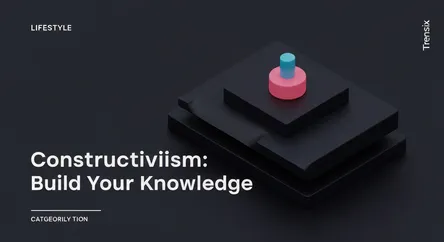Lifestyle
Constructivism: Build Your Knowledge

Explore Constructivism, the educational theory where learners actively build knowledge from experience rather than passively absorbing information.
What is it?
Constructivism is a learning theory that posits learners construct their own understanding and knowledge through their experiences and interactions with the world. Rather than being passive recipients of information, students are seen as active participants who build upon their existing knowledge. This approach emphasizes hands-on, inquiry-based learning. Key theorists like Jean Piaget focused on how individuals create mental models to understand the world, while Lev Vygotsky highlighted the importance of social interaction and collaboration in the learning process.
Why is it trending?
Constructivism is gaining traction because it aligns with the demands of the 21st-century workplace, which values critical thinking, problem-solving, and collaboration over rote memorization. Modern educational systems are shifting away from traditional, teacher-centered lectures towards more engaging, student-centered approaches. Methods like project-based learning, collaborative work, and experiential learning are all rooted in constructivist principles. This theory supports a deeper, more meaningful understanding of subjects, making learning more relevant and lasting for students.
How does it affect people?
For students, constructivism fosters greater engagement, autonomy, and ownership of their learning. It encourages curiosity and develops essential life skills by allowing them to explore topics and find solutions for themselves. The role of the teacher also transforms significantly; they become facilitators or guides who create stimulating learning environments and support students' discovery process, rather than simply dispensing facts. This shift can lead to more dynamic classrooms and empowered, lifelong learners.